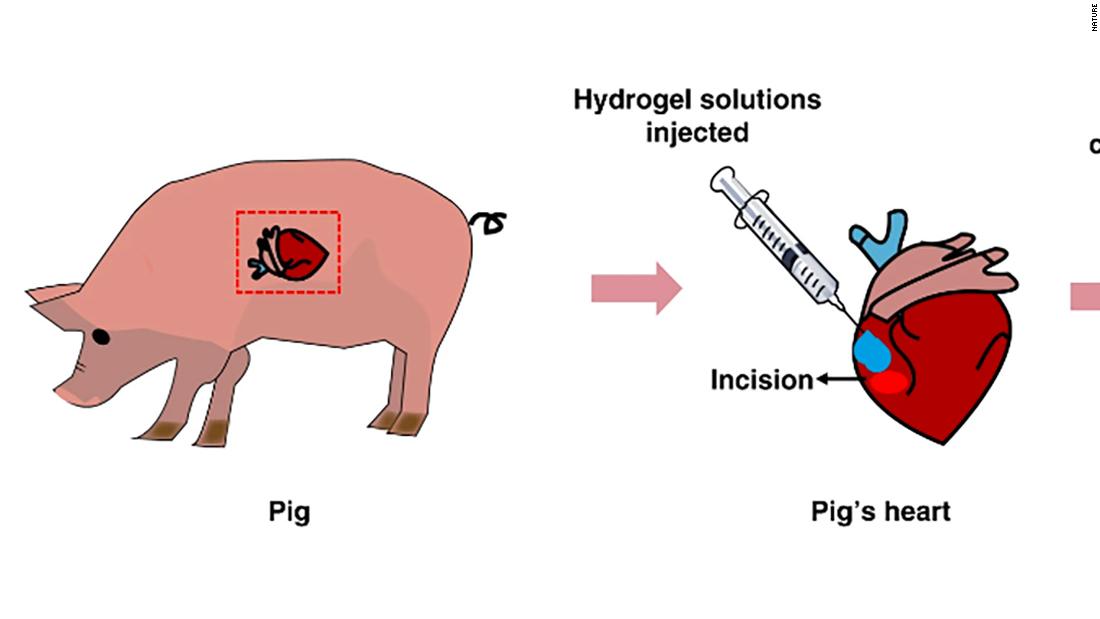
A new "bio-glue" -- an experimental adhesive gel that is activated by a flash of light -- has been proven to stop high pressure bleeding in the hearts of pigs.
Additional research confirming the safety of this product is needed before experiments can begin in humans, according to the authors of a study published Wednesday in the journal Nature Communications.
Around the globe, more than 234 million surgeries are performed each year, the World Health Organization estimates.
Surgical suturing is especially difficult when dealing with diseased, damaged or small blood vessels, according to the study authors. Existing surgical products, such as Fibrin Glue and Surgiflo, have been effective in stopping bleeding during surgeries, but they take minutes to set and in some cases require additional stitching.
Numerous attempts have been made to create improved and swifter-acting surgical adhesives, but few nontoxic materials can meet the criteria of holding fast on wet tissues while resisting pressure and the movement of a beating heart.
A team of researchers from Zhejiang University School of Medicine in Hangzhou, China, accepted the challenge.
Inspired by the matrix composition of human connective tissues, they created a gel composed of a network of proteins and other molecules. The product, which requires ultraviolet light to activate, can adhere within seconds and then bond to wet biological tissue surfaces.
In early experiments, the research team showed that their bio-glue could seal wounds to pig livers.
Next, they demonstrated that wounds and punctures of hearts -- among the most difficult of surgical challenges -- could also be sealed using only the bio-glue, no stitches.
In pigs, the bio-glue sealed a punctured carotid artery, a major blood vessel in the neck, in less than a minute and also filled holes in the cardiac wall. The Chinese researchers monitored their post-surgical pigs for a two-week recovery period and saw natural healing with no abnormalities or unusual inflammation.
The surgical repairs can withstand a systolic blood pressure reading of up to 290 millimeters of mercury, or mmHg, which is "significantly higher" than systolic readings seen by most doctors (the usual range is between 60 and 160), the study authors noted.
"Most importantly, the hydrogel can stop high-pressure bleeding from pig carotid arteries with 4~ 5 mm-long incision wounds and from pig hearts with 6 mm diameter cardiac penetration holes."
Based on these early experiments, the bio-glue shows promise for use in human surgeries and to stop emergency bleeding, the authors concluded.
No comments:
Post a Comment